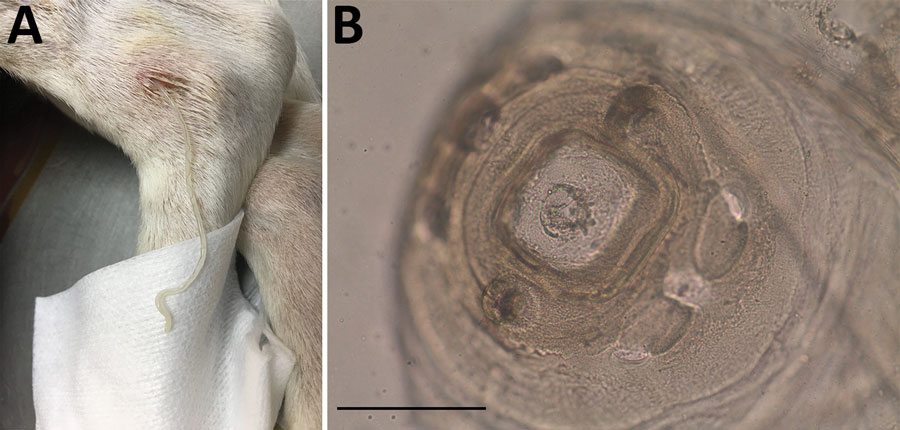Volume 26, Number 8—August 2020
Dispatch
Canine Dracunculus Nematode Infection, Toledo, Spain
Figure 1

Figure 1. Dracunculus worm extracted from a dog in Toledo, Spain, 2018. A) Nematode extracted from the subcutaneous tissue of tarsal region on the left hind limb of naturally infected dog. B) Microphotograph of the anterior end with characteristic papillae. Scale bar represents 50 µm.
Page created: May 27, 2020
Page updated: July 18, 2020
Page reviewed: July 18, 2020
The conclusions, findings, and opinions expressed by authors contributing to this journal do not necessarily reflect the official position of the U.S. Department of Health and Human Services, the Public Health Service, the Centers for Disease Control and Prevention, or the authors' affiliated institutions. Use of trade names is for identification only and does not imply endorsement by any of the groups named above.